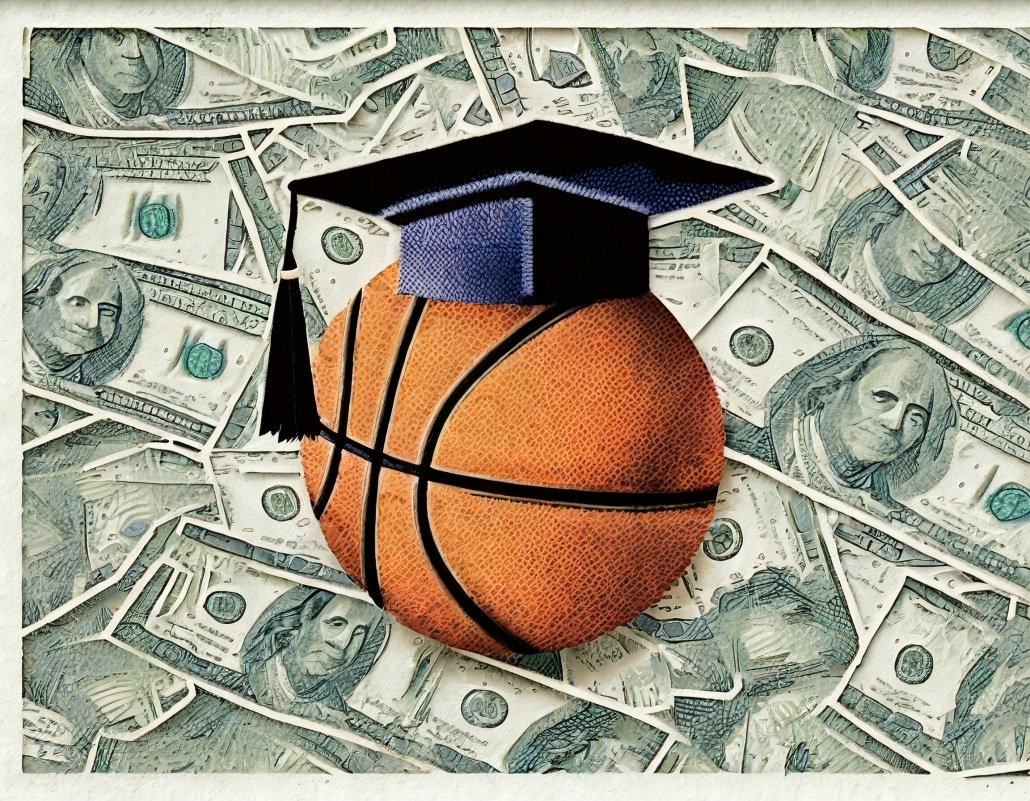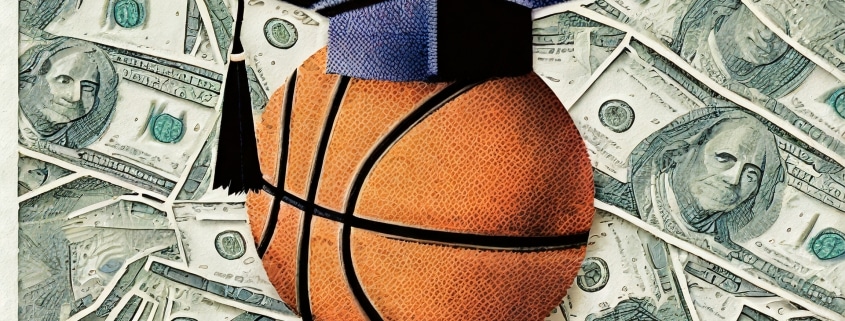Chance of NCAA stopping the Oregon Legislature — NIL!
Lawmakers tackle ‘name, image, and likeness’ payments in HB 4119
Zero, nothing. That’s how Merriam-Webster defines the word ‘nil.’ But in today’s college athletics NIL can mean quite the opposite, as in “Mucho Moola.” Less than three years since the U.S. Supreme Court ruled that college athletes can be paid for use of their name, image or likeness (NIL), boosters of major college sports programs around the country have been collecting cash to help entice top players to either sign with their teams or change jerseys from other schools with lucrative, often shady, marketing deals. One college quarterback recently was seen taking possession of a nearly $300,000 Lamborghini.
Determined not to have their top players pilfered by other schools, states are busy passing laws to enhance the NIL playing field for their state’s schools, while also insulating them from being sanctioned for their efforts by the governing body of college sports, the NCAA.
HB 4119, which is intended to do just that, flew through the Oregon House last week and awaits action in the Senate. The deluge of action by state legislatures is tied directly to the failure of the NCAA to establish comprehensive rules on NIL activities, as well as a long-standing opposition by the NCAA to paying players, especially in football and basketball, which generate billions of dollars for the coffers of the NCAA and its member schools. It is a great business model when you don’t have to pay the workers who generate the profits.
While players receive little more than scholarships for their work, schools are happy to spread the financial windfall elsewhere. Consider that the highest paid college football coaches made an average of $10 million this past season in base pay alone. Studies show that the nation’s top football programs pay millions more in football coaches’ salaries than they pay for all their schools’ sports scholarships combined. 
You might call it the sports industrial complex. Alabama pays its football coaching staff about $20 million a year. The University of Oregon athletic department boasts 26 individuals designated as either associate or assistant athletic directors and about 250 employees overall.
Lucrative broadcast rights for college football and men’s basketball have obliterated any lingering argument for calling them amateur contests.
“The time may come when schools agree to simply hire a football or basketball team to represent the school, just as they hire coaches,” said Rep. Zach Hudson, who supported the bill in committee.
HB 4119 is a necessary step to stay competitive in what is now the Wild West of college sports. The NCAA has lost control of the landscape, thanks largely to its own blindness to recognizing the legitimate financial rights players should own in the conduct of the enterprise. But the bill is somewhat symbolic.
Stephanie Vardavas is a former Assistant General Counsel for both Major League Baseball and Nike, and currently is an adjunct professor in sports product management at the University of Oregon.
“A state legislature has no jurisdiction over the NCAA as it is a voluntary, membership driven and governed organization,” she said. “What I think the bill does is send a shot across the bow to the NCAA that if you are going to mess with us, you’re going to get trouble.”
Historic alliances, like the Pac-12 Conference, have been destroyed in a conference realignment movement driven entirely by the allure of big money. Olympic sports, like track, gymnastics, wrestling and volleyball, now will find student-athletes travelling transcontinental to accommodate the financial goals of the football program. I can’t wait to watch that beach volleyball match between Northwestern and UCLA on the shores of Lake Michigan in December.
There is a sense of irony that college football, the sport that generates much of the money to pay for non-revenue sports, is also responsible for the trauma student-athletes in those sports will likely experience.
HB 4119 provides a layer of protection for Oregon’s universities in the desire to stay competitive in the revenue chasing frenzy. While necessary, it also adds to the patchwork of rules adopted by multiple states that will make it difficult for the NCAA or a new governing body to create a comprehensive and uniform standard of conduct that all must adhere to.
Vardavas found particular interest in the inclusion of “athletic reputation” in HB 4119, turning NIL into NILR. “Of course, the entire source of the value of the NIL rights is precisely the athlete’s athletic reputation,” Vardavas said. “Nobody is signing up to do trading cards featuring the English majors … unless those English majors can also shoot threes.”
The move to recognize the value college players bring to the table and pay those players as employees is gaining momentum. Of course, in Oregon if they were employees they would be considered “public officials” under Oregon’s ethics laws, and using their position as star athletes at the university to be paid for NIL would be “using their public position for personal gain” and put them in violation of Oregon Ethics Law.
Alas, there’s always something else to contend with, isn’t there?


